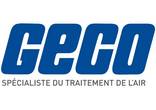
Lecture series : Clean Energy Transition
The Clean Energy Transition (CET) has become a priority for Europe to move from a fossil fuel-based to a carbon-free energy model by 2050, thereby reducing CO2 emissions, limiting global warming and curbing climate change.
This lecture series will bring together a group of worldwide renowned experts in specific technical aspects of the CET (many of them qualified as Distinguished Lectures by the IEEE).
The lectures will consist of two content levels :
- present advanced and disruptive scientific concepts oriented to spark ideas among scientists, researchers and students interested in physical and digital energy management ;
- include a review of projects, trends, businesses and policies related to the CET with the aim of attracting the attention of industry, associations and institutions working in/for the energy sector, trying to also draw the attention of civil society in general.
Join the LIST, FNR, IEEE and University of Luxembourg (SnT) on this journey towards energy transition, catalyzing a greener, cleaner, and more sustainable future !
Objectives
In this lecture series, we will explore the pioneering technologies that will transform our carbon dependent society to a carbon-neutral one.
We will advance in understanding energy efficiency, renewable energy, electrification, digitalization, and beyond.
We will navigate the challenging landscape of the future of energy - digitalized, decentralized, and decarbonized.
First event :
- 08th September 2023
- Prof. Antonello Monti (RWTH Aachen University, Germany)
- Energy Digitalization : A Key Enabling Technology for the Clean Energy Transition
- 3-4:30 pm
Abstract :
Energy digitalization is a complex process with significant technical, economic, and social implications. This seminar describes these effects using a bottom-up approach, beginning with grid components and culminating in Europe’s cross-border energy system. We discuss digitalization’s impact at every level and potential implementation architectures, illustrated via demonstration projects. We draw upon experience from substantial European projects to forecast our energy systems’ possible evolution. Focus is given to the distribution grid’s transformation, a significant infrastructure change. Notably, the changing role of customers from passive participants to future system drivers is also addressed.
























